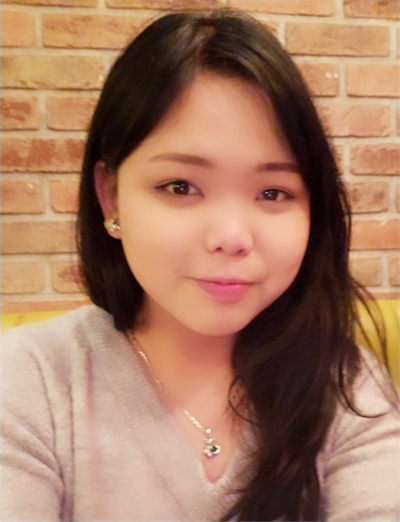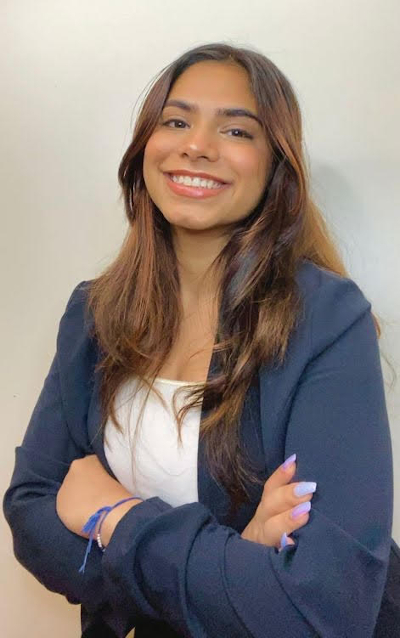by Selassie Mawuko, Ritika Talwar, and Hui Shan Zhou Peng
In this article, LaGuardia students and members of the STEM club – Selassie Mawuko, the president majoring in Biology, Ritika Talwar, the vice president majoring in Civil Engineering, and Hui Shan Zhou Peng, the secretary majoring in Biology, present a brief summary of their experiences and learning incurred during the club activities. In particular, they provide a detailed narrative of the discussions on remote learning which they moderated on behalf of the club.
Welcome to the LaGuardia STEM Club!

Selassie Mawuko
Selassie Mawuko, a Biology major currently in her junior year at Queens College. During her time at LaGuardia Community College, she was the President of the STEM club in the Fall of 2021. In her sophomore year, she participated in extracurricular activities like The President’s Society, NIH Bridges Program, and of course The STEM club. As a daughter of Ghanaian immigrants, she has always believed in hard work and helping the community, especially children. For this reason, she chose to become a pediatrician in the future. In this career, she could help children who need healthcare especially in the continent of Africa where she is originally from, believing children are the future of every nation. Apart from her academic and career aspirations, she enjoys listening to music, reading, learning new recipes and she would love to travel around the world in the future.

Hui Shan Zhou Peng
Hui Shan Zhou Peng is an international student who comes from a multicultural background and was born to Chinese parents in the state of Carabobo, Venezuela. She is currently a junior majoring in Clinical Laboratory Science at York College. In her years at LaGuardia Community College, she actively engaged in extracurricular activities through which she participated and took the position of secretary of the STEM club for the period of Fall 2021. Also, she has been inducted as a member of the Phi Theta Kappa Honor Society in 2021. Seeing her parents struggle to provide a better life for her and her brother, she decided to come to the United States in 2016 to chase her dream of becoming a Clinical Laboratory technologist. Aside from studying hard to make all her dreams come true, she enjoys learning new languages and vlogging on her social media platform. Also, she loves cooking, dancing and is a great confidant.

Ritika Talwar
Ritika Talwar, an immigrant who was born and raised in the state of Punjab, India. Since she was little, she looked up to her uncle who worked on building complex structures around the city, and ultimately Ritika chose to major in Civil Engineering at LaGuardia Community college. At LaGuardia, she partook in the President Society Environmental and STEM club activities as a member, and then took the role of the latter organization’s Vice President position. She is also currently serving as a peer mentor for CREAR Futuros. She interned at engineering firms and took part in various outreach programs that helped her gain some experience related to her career path. Ritika plans to continue her education by going to a 4-year college to complete her Bachelors in Science (Engineering) and aspires to become a civil engineer.
There are many benefits to joining a student club at an academic institution, especially the STEM Club at LaGuardia Community College (LAGCC). We became the Club’s officers in the Fall of 2021 to help organize engaging events and learn more about ourselves, our goals, and our strengths. Our first event involved discussions on “Diversity and Inclusion in STEM” where we had panelists from different scientific backgrounds share their experiences and accomplishments. Our second event was the “Scientific Kaleidoscope Event” where we had professors from different fields of our Natural Sciences department present their research to educate us and provide insights into interdisciplinary topics related to climate change. Our third event was “The Remote Learning Diaries Workshop” where the college community discussed how remote learning has had both positive and negative impacts on students, faculty, and staff. We were able to learn and gain insights from the previous club officers, our club mentor, and other students and guests. We also found out that we are good at other things, whether that involves multitasking, staying organized, generating ideas, or serving others. This self-awareness will be beneficial for our future careers and journeys. We have developed and further polished our soft skills. These skills allow us to interact effectively with others, involving aspects such as good communication, attitude, and work ethic. Additionally, we have learned to work collectively with each other as a team which has helped us broaden and further improve the skills that we already had.
Being part of an organization such as the STEM Club allowed us to experience college from a different perspective. Especially, in the prevailing circumstances of quarantine and remote learning, making friends or even acquaintances was hard. This club allowed us to ease up and helped us to communicate with others. When we reflect back, we see the bonds we formed with each other as club officers and with our club mentor that will last long. Picking up each other's slack when one of us was unavailable is what allowed us to learn how to work as a team. The experiences and skills we gained while serving as officers will help us throughout our future careers. If any of our peer readers (students) are interested to join the club, we encourage you to visit our club ePortfolio and become a member, using the link provided below: https://lagcc-cuny.digication.com/stem-club-lagcc/become-a-member
On January 14, 2022, LAGCC STEM Club hosted “The Remote Learning Diaries”, an online workshop where the panelists discussed in more detail the new lifestyle that students, faculty, and staff members alike had to adapt to since the start of the COVID-19 pandemic. They also discussed how to prepare for the transition back to in-person/hybrid classes for the upcoming semester. As these are very important discussions in the current context, we are providing a summary of this event to our college community, in the sections below.
We were honored to be joined by Mr. Danny Ng, an ASAP (Accelerated Study in Associate Programs) Recruitment Specialist; Ms. Jennifer Guaraca, from the President’s Society and Program Manager of Development Operations; Dr. PratikKumar Rathod, an Assistant Professor from the Natural Sciences (NS) department; Dr. Richa Gupta, an Associate Professor from the NS dept; Dr. Roman Senkov, an Associate Professor from the NS dept; and Ms. Shayla Pruitt, the Associate Director of Campus Life, to have an open discussion with our students, where everyone had the opportunity to share their experiences, opinions, and points of view with each other. The complete recording of the event can be found at: https://bit.ly/STEMCLUBRLW.
The agenda for this workshop was divided into two major segments. The first segment was dedicated to questions and answers with the students. The second segment included questions for panelists and advice from them. To conclude, we conducted a brief survey for the participants to gather feedback on the information shared and/or provide more suggestions. We are providing a list of questions and answers (Q&As) here, which were discussed during the event.
| Segment 1: Q&As WITH THE STUDENTS & PANELISTS ADVICE |
|---|
|
Q#1: How do you feel overall about distance/online education? (including home environment/distractions, technology-related issues, etc.) Thoughts shared:
Thoughts shared:
Thoughts shared:
Thoughts shared (many discussions took place, so summarized points are provided below):
Thoughts shared:
Thoughts shared:
Thoughts shared:
Thoughts shared:
Thoughts shared:
|
| Segment 2: PANELIST Q&As |
|---|
|
Q#1. If you were/are teaching a class currently, what is the one thing you would do to make it more engaging for all students in the online learning mode?
Thoughts shared:
Thoughts shared:
Thoughts shared:
Thoughts shared:
|
During this virtual session, we were able to highlight important points related to online learning and the college journey with our panelists and the students. The student body felt heard and understood throughout the session, during the current difficult time of an ongoing pandemic. We believe the primary outcome of this event, besides serving the purpose of getting members from different divisions of our college together to discuss such a relevant topic, has been to provide solutions for the issues faced which will ultimately help in improving the quality of education and our experiences for online and in-person learning.
We thank our STEM Club Mentor, Dr. Richa Gupta, for guiding us all throughout and for critical reading of our article. We also thank Ad Astra editors for their review.